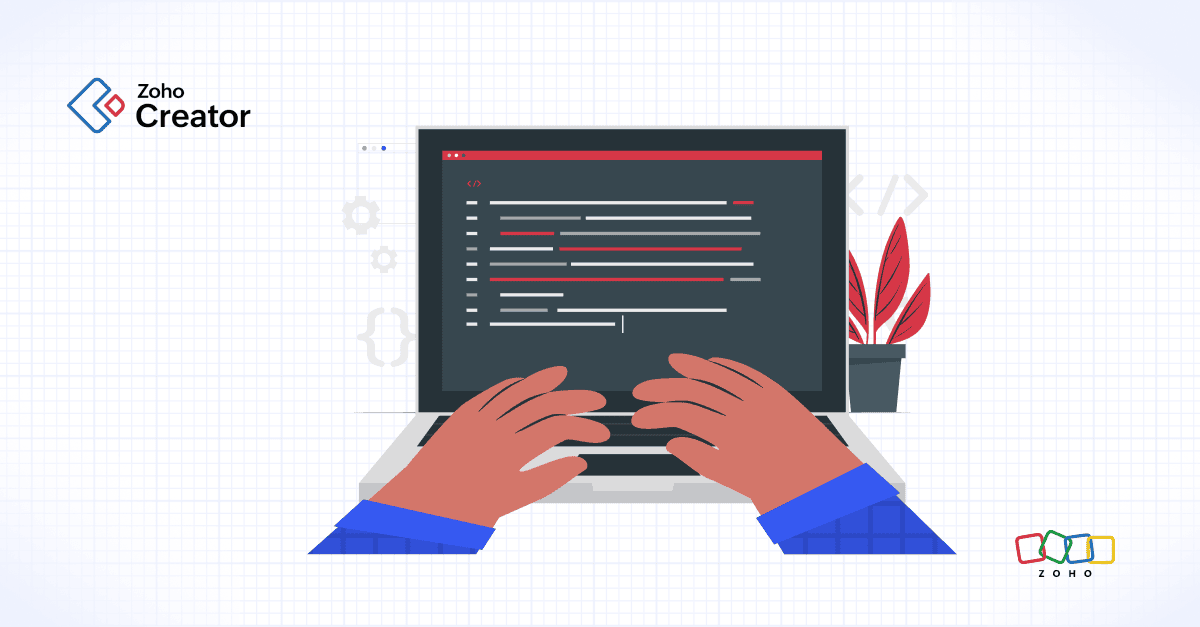- HOME
- Know Your Tech
- How custom apps are more secure than spreadsheets
How custom apps are more secure than spreadsheets
- Last Updated : November 18, 2025
- 1.0K Views
- 5 Min Read
No matter what kind of industry you're in, you deal with data that needs to stay secure, whether that's consumer data, internal business data, or something else. While there are obvious data concerns in particular industries, like healthcare, there are also regional regulations like GDPR or CCPA that apply across industries. Aside from regulatory concerns, the average security breach costs millions of dollars, as well as potentially opening your business up to lawsuits or fines, and losing face in front of customers.
If you, like many people, still use spreadsheets to store and share secure data, you could be setting yourself up for a security breach. Our goal today? To show you exactly where and how spreadsheets can become a security risk and why a custom app might be the right solution for you.
Let's talk about why, exactly, spreadsheets aren't the most secure data storage option:
Weak protections
Most spreadsheet-processing software, like Excel or Apple Numbers, allows for password protection and/or data encryption. However, these protections have limits that everyday users might not be aware of:
Passwords and encryption can be easily cracked with free programs
Passwords can only be implemented on a file basis—most programs don't offer the ability to password-protect one sheet within a file
Once someone can open a file, there are creative workarounds for accessing "secure" data—for example, using vlookup in Excel to find information that has been deleted
Opening a spreadsheet in a different program than it was created in can also break certain security measures
No way to prevent sharing
Even if a spreadsheet is password protected, that doesn't stop someone from copying and pasting information into a new document, or sending the spreadsheet via email to someone else. This could be done maliciously, but it's also possible for someone to do it without realizing the security error they're committing, or to fall prey to a phishing scam or social engineering. There's also the potential for someone to send confidential data to the wrong email address on accident, making further leaks even easier.
Inability to track
Once data is put into a spreadsheet, it becomes much harder to track how employees are using and/or sharing that data. For example, compare a spreadsheet that everyone has access to against a standalone app with audit trails and access logs. With a standalone app, your security and oversight teams can more closely track compliance and stop or prevent data breaches.
What about encryption?
When you see that it's possible to encrypt a spreadsheet, you might be lulled into a false sense of security. While it sounds impressive, encryption of a spreadsheet is usually based on a password—which is only as strong or as weak as you make it. That one password is then shared among many people, which creates a lot of potential security "leaks."
Even if you create a secure password, there are workarounds. A quick search for "how to crack an excel password" brings up a list of tutorials that can be implemented with or without software, and shows you how easy it is to crack a password.
How creating an app can help
The idea of building an app to replace your spreadsheets and secure your company's data might feel like a huge project, but low-code tools like Zoho Creator can make the actual app creation process much faster than traditional development. But even if it's a small project, you still need to have a compelling reason to undertake it—here are a few ways this can keep your data more secure:
Easier and more secure sharing
Rather than having multiple copies of a spreadsheet in different email inboxes, using an app keeps all of your data in one spot. Individual users can still be a security liability—but you can enforce strict password length or security requirements, or mandate that passwords be changed every 45 days.
A side benefit is that a centralized app means you won't have to worry whether everyone is looking at the latest data. Instead of juggling multiple versions of the same spreadsheet, each with a different set of figures, your team can log in to your custom app and see the most current information available.
Role access and privileges
As mentioned above, spreadsheets don't have detailed control over visibility. However, when using an app, you can create roles for users, then assign data access and privileges based on those roles. If someone needs to be able to see part of a data-set but not all of it, you can set that up.
In fact, you can create a role that has an entirely different view of the data. For example, you can let managers access a big picture view (with more data exposed), while other employees only have access to the information that is relevant to them. This way, there's no need to remember to give the right access levels to each person on each file. You can also restrict export privileges, so that users can't export the data unless their role requires it. This cuts down on both accidental and intentional data leaks.
Easier compliance management
Depending on what your industry's standards are, an app can help you both comply with security standards and prove compliance. For example, the National Maternity Hospital built an app on Zoho Creator that automatically recorded video and audio material to prove their compliance with regulations about patient data.
Are you ready to make the switch?
There are plenty of upsides to moving to a custom app, from streamlining your data workflows to adding more layers of security. The only real downside is the time and effort spent on creating the app. And depending on the technical ability and resources of your team, that might be a much smaller investment than you think.
If your organization only uses the occasional spreadsheet and doesn't need a full database, or doesn't deal with secure customer data, then you might be better off sticking with spreadsheets. Otherwise, it might be time to look into creating your own app. If you want to read more about how to make the switch from spreadsheets and how your business will benefit, head here.
 Michelle Nickolaisen
Michelle NickolaisenMichelle is a writer and marketer based in Austin, Texas.



